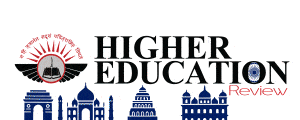ISB to serve as a knowledge partner for the G-20 education working group
 The Indian School of Business (ISB) is working as a knowledge partner for the G-20 Education Working Group with the National Skill Development Corporation (NSDC), which is part of the Ministry of Skill Development and Entrepreneurship (MSDE) (EWG).
The Indian School of Business (ISB) is working as a knowledge partner for the G-20 Education Working Group with the National Skill Development Corporation (NSDC), which is part of the Ministry of Skill Development and Entrepreneurship (MSDE) (EWG).
ISB will provide research support to NSDC in the broad area of the 'future of work'.
In addition to original study, ISB will create knowledge collateral for the G20 EWG using two webinars and a seminar. The webinar series in March will address 'megatrends shaping the future of work' and 'foundational skills and lifelong learning'.
According to the report, the government's gross capital formation GCF reached a high of 11.8 percent of GDP in 2021-22, up from 10.7 percent in 2020-21.
SBI report on Rajan's remarks on Hindu rate of growth is "ill-conceived and biassed."
The series will culminate in a skills exhibition in Bhubaneswar, with G-20 nations taking part. The knowledge collateral will aid evidence-based policymaking in the area of 'future of work' and will inform the ministerial declaration inputs.
"We are delighted to assist the G-20 Education Working Group with research and expertise. "India's presidency comes at a particularly relevant and exciting time, as workplaces around the world face unprecedented new challenges, ranging from the rise of AI to new work models to the demand for sustainable business practises," Deepa Mani, Deputy Dean, Executive Education & Digital Learning and Professor of Information Systems, ISB, said in a release.
“We hope to leverage ISB’s track record as one of the country’s most productive research institutions to articulate the trajectory of future of work, identify skill gaps, and develop analytical frameworks that inform skill development, governance and inter-country mobility to address these gaps,’‘ the Deputy Dean added,
Ved Mani Tiwari, CEO (officiating), NSDC, said: “India has assumed the G20 presidency at a crucial time as we experience rapid transformation in the patterns of work and witness emerging trends in technology. To have ISB as our knowledge partner for the G-20 EWG will certainly aid in developing a robust policy framework to identify the gaps in the skill ecosystem and formulate the strategies to address them.’

